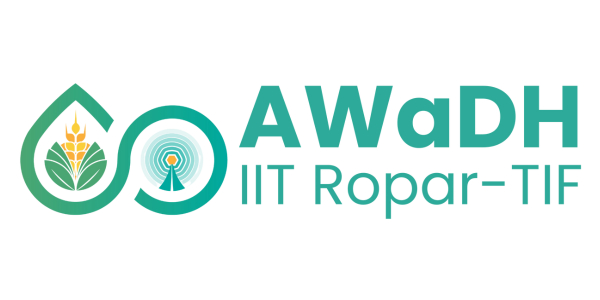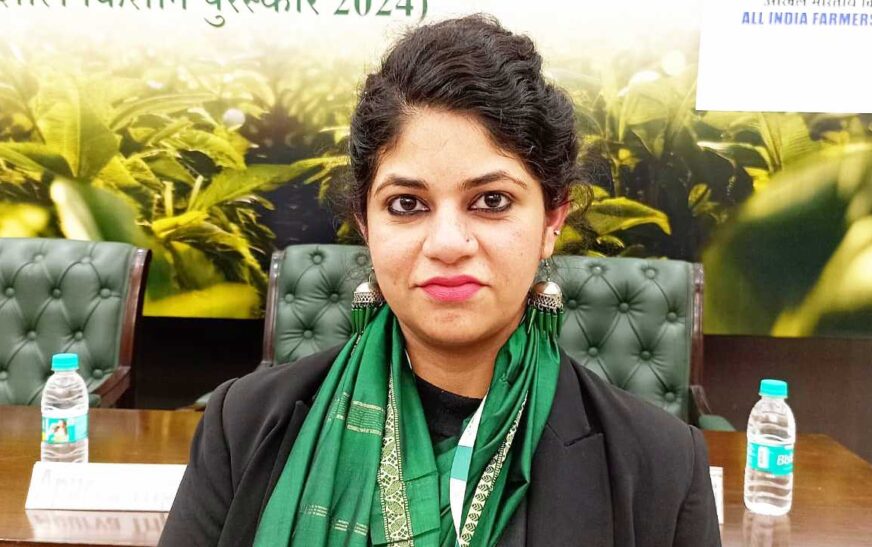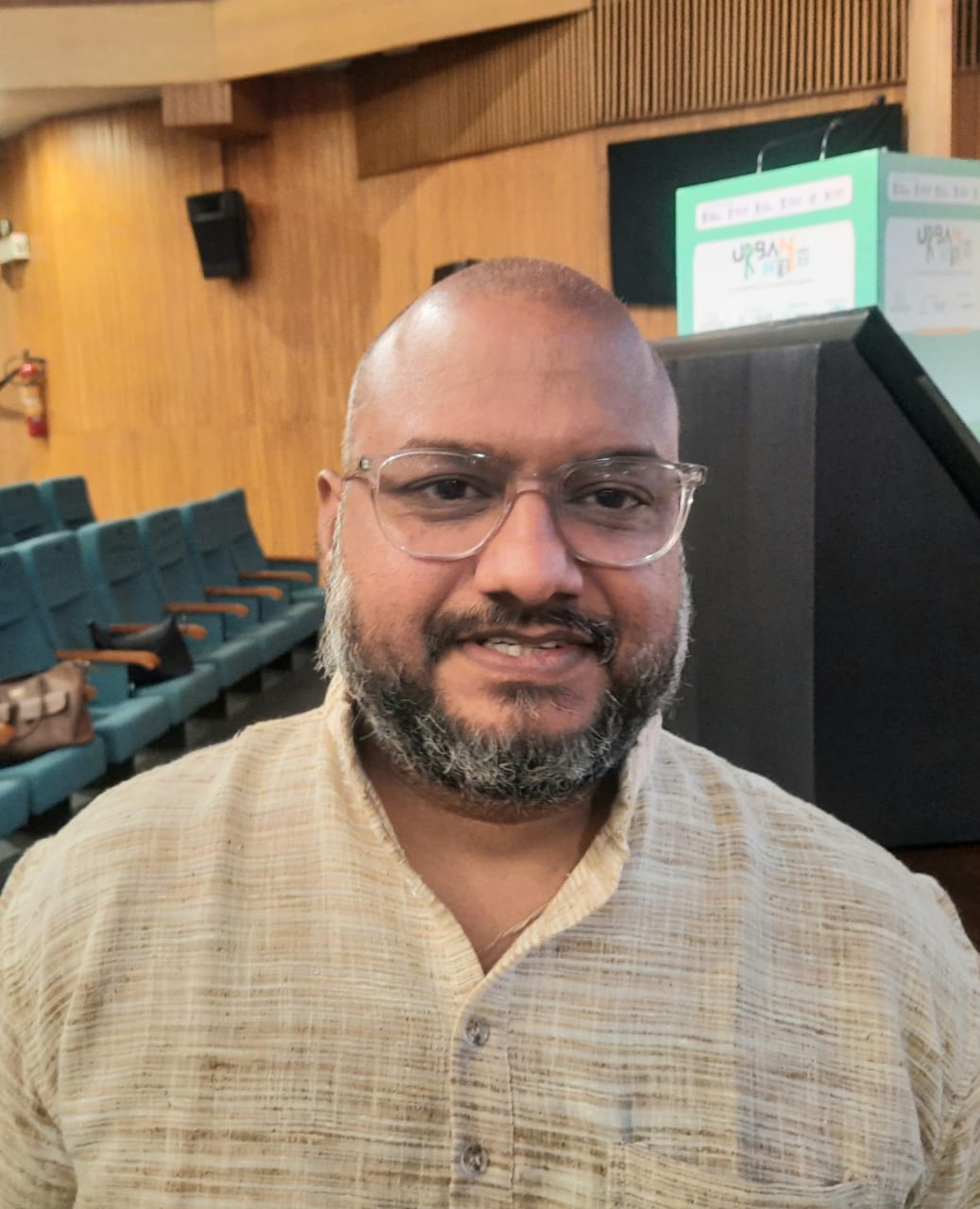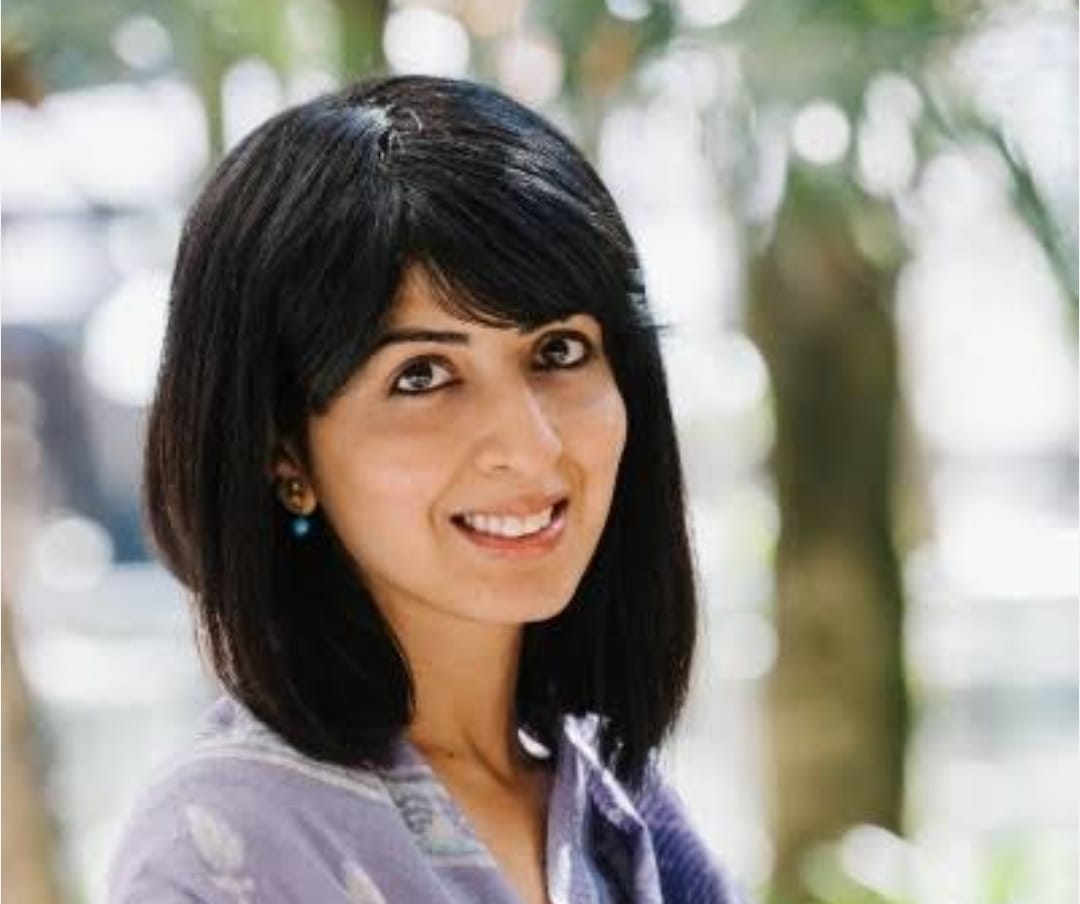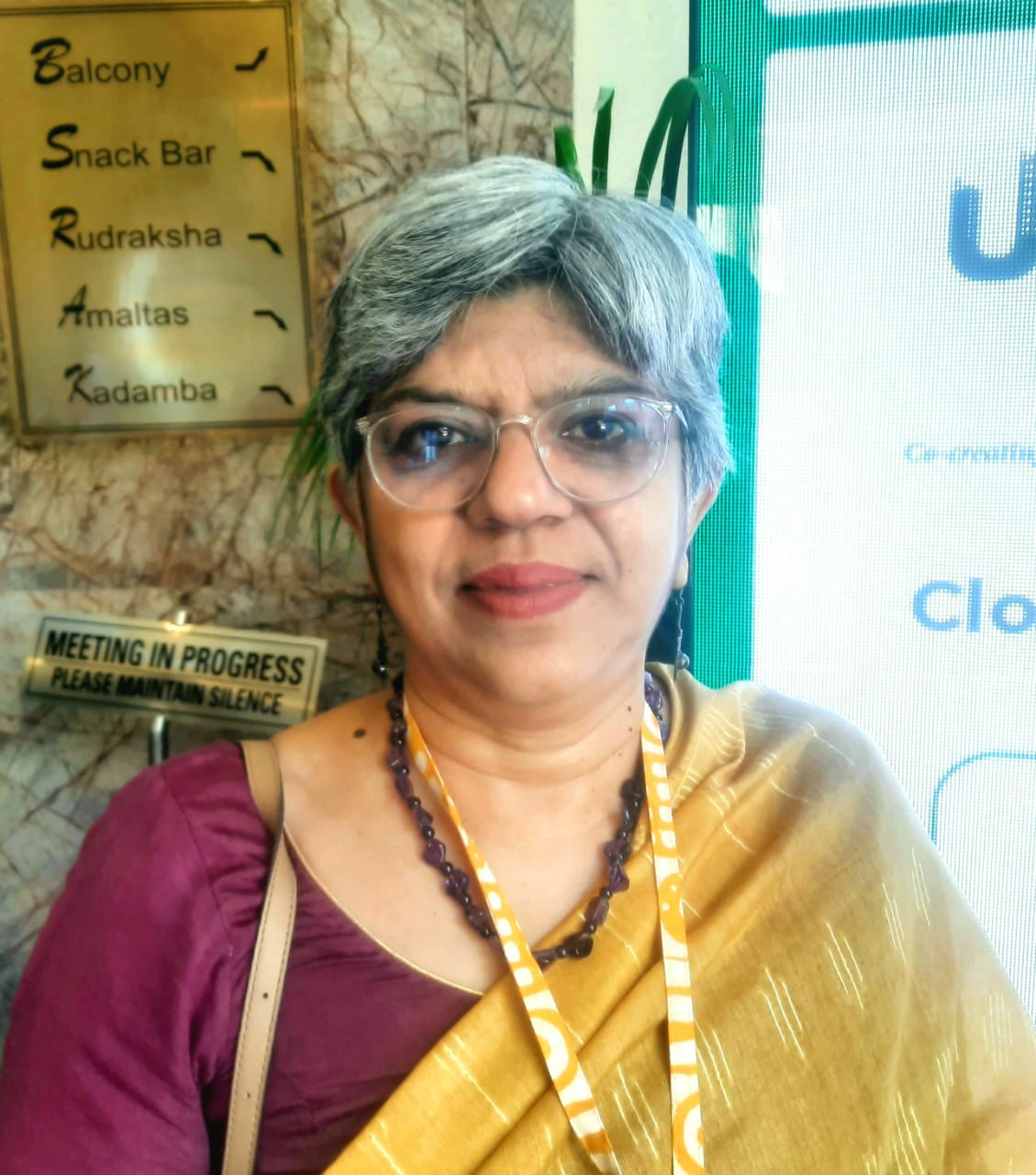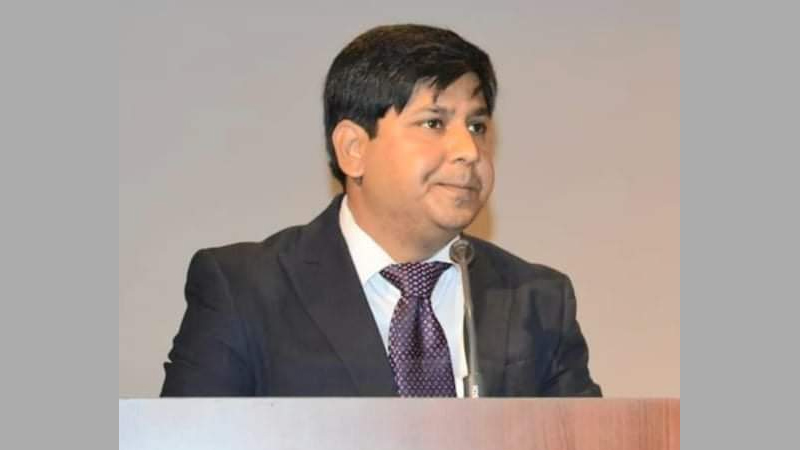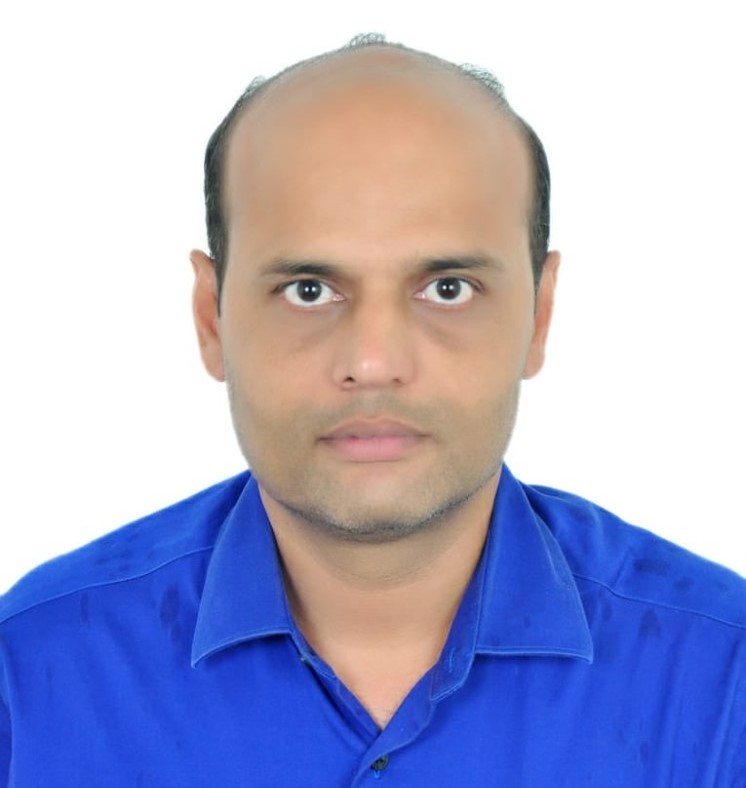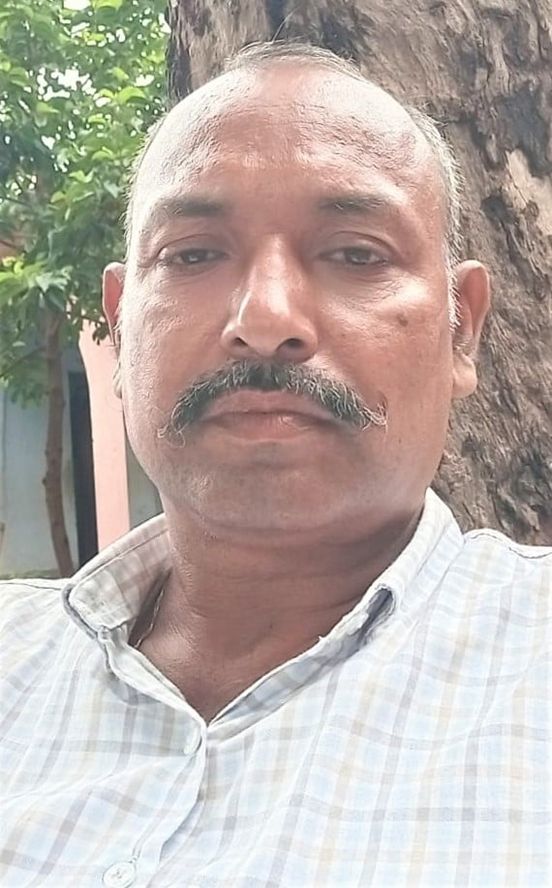The IIT Ropar iHub-AWaDH (Agriculture and Water Technology Development Hub) is a trailblazing innovation center revolutionizing agriculture and water management in India through advanced technological solutions. Established under the National Mission on Interdisciplinary Cyber-Physical Systems (NM-ICPS) and funded by the Department of Science and Technology (DST), Government of India, the hub acts as a driving force for interdisciplinary research, uniting academia, industry, and policymakers in transformative collaborations to revolutionize agriculture value chain.
With a strong focus on sustainability, scalability, and intelligence, iHub-AWaDH addresses critical challenges in agriculture and water resource management. It spearheads initiatives such as precision farming, efficient irrigation technologies, water quality monitoring systems, and AI-powered decision-making platforms leveraging machine learning and IoT.
The hub also fosters an entrepreneurial ecosystem by incubating startups, offering cutting-edge infrastructure, mentorship, and funding support to innovators and researchers. Its multidisciplinary approach combines expertise in engineering, environmental science, and agronomy to deliver solutions tailored to India’s unique needs while maintaining global applicability.
Aligned with India’s vision of enhanced agriculture value chain, farm productivity, and water security, iHub-AWaDH is making remarkable progress in advancing self-reliance and sustainability. Through impactful partnerships and pioneering research, the hub is not only reshaping agriculture and water management but also building a resilient, technology-driven rural economy.
In an exclusive conversation with The Interview World, Dr. Radhika Trikha, CEO of the Technology and Innovation Foundation (iHub-AWaDH), IIT Ropar, delves into the organization’s strides in revolutionizing India’s agriculture value chain and reinventing water technologies. Furthermore, she discusses innovations developed and commercialized, highlights the patents filed and granted, and shares a compelling vision for transforming the agriculture value chain over the next decade. Here are the key insights from her inspiring conversation.
Q: How is iHub-AWaDH at IIT Ropar driving innovations in agriculture and water technologies to empower farmers and address critical challenges in India?
A: Our name, Agriculture and Water Technology Development Hub (iHub-AWaDH), reflects our core mission: advancing innovations in agriculture and water management. We operate under the National Mission on Interdisciplinary Cyber-Physical Systems (NM-ICPS), spearheaded by the Ministry of Science and Technology. Essentially, we integrate hardware and software technologies for agriculture and water—our two primary focus areas.
To date, we have developed nearly 70 groundbreaking technologies in soil and field applications. These include automatic weather stations, tools for mapping farm biodiversity, and systems for monitoring livestock and poultry health. Moreover, each innovation addresses pressing challenges in agricultural productivity and sustainability.
Our efforts merge cutting-edge engineering with advanced technologies like artificial intelligence (AI) and the Internet of Things (IoT). By leveraging these tools, we also create practical, impactful solutions that work directly on the ground.
Water, our second key focus, receives equal attention. Through the same multidisciplinary approach, we revolutionize water management, ensuring its efficient use and sustainability in agriculture and beyond.
Q: What types of technologies has AWaDH developed, and how many of these innovations have been successfully commercialized so far?
A: Of the 70 technologies we have developed, 12 have already been successfully commercialized. These innovations are actively deployed on farms, demonstrating their practical impact on the ground. We have also transferred these technologies to startups incubated within our ecosystem, ensuring they reach broader markets.
Our hub actively supports budding entrepreneurs and startups with innovative ideas in agriculture and water. By providing resources, mentorship, and infrastructure, we empower them to transform concepts into scalable solutions.
One of our most promising advancements is nano-bubble technology. This breakthrough infuses water with oxygen at the nano scale, creating highly oxygenated water. The result is a versatile solution with significant applications—enhancing fishery environments, improving water quality, and remediating wastewater.
In simple terms, nano-bubble technology introduces up to 300% more oxygen into water compared to conventional methods. This oxygen-enriched water not only benefits aquatic ecosystems but also serves as an effective tool for wastewater purification. Through this innovation, we are driving impactful change in sustainable water management.
Q: How many patents has AWaDH filed, and how many of them have been granted so far?
A: We have established a strong presence in technical publications, with over 150 papers published in various peer-reviewed journals. In the realm of intellectual property, we have demonstrated significant progress. More than 20 patents have been filed, and two have already been granted.
Our support extends to startups, encouraging them to file for intellectual property rights. As a result, over 50 supported startups have successfully obtained granted IPs, further enhancing their value and innovation potential. Additionally, we are actively contributing to industrial design, particularly in agricultural machinery. To date, we have secured grants for nearly nine industrial designs, underscoring our commitment to advancing practical and innovative solutions.
Q: What do you envision AWaDH impacting the agriculture value chain in the next five to ten years?
A: We have already embarked on an ambitious journey to create a profound impact across the entire agriculture value chain. At the heart of our mission is food security, a growing global concern as populations continue to rise, not just in India but worldwide. As M.S. Swaminathan famously said, “If agriculture goes wrong in a country, everything goes wrong.”
We restore balance by positioning agriculture as a key pillar of progress. Moreover, we aim to transform agriculture into a thriving, viable career path—one that attracts young talent and innovation. To achieve this, we are driving change by integrating emerging technologies. These include artificial intelligence and the Internet of Things (IoT), into agricultural practices.
In the long term, we are committed to revolutionizing agriculture, focusing on sustainability while ensuring that farming becomes a profitable and reliable source of income for millions of Indians. Through these efforts, we also aspire to make agriculture a cornerstone of India’s future growth and prosperity.
